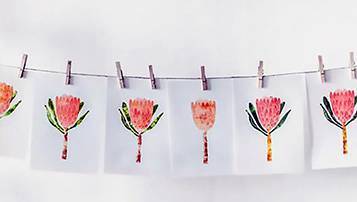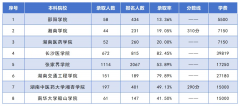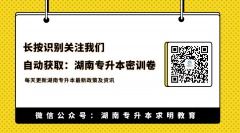

Getting plenty of exercise is very important. I enjoy swimming very much. Last summer I went to the (1)_______ every day. I plan to go there this summer too, but I may not be able to. I have a new(2)_______, sometimes I have to work until (3)_______ at night. Although I now work more hours than I used to, yet I do receive a larger salary. I didn’t receive much pay on my (4)_______ job. I like my new job, but had I know that it would take up so much of my free time, I would not have taken. I prefer (5)_______ to making more money.
I have heard that riding a bike is good exercise. Maybe I will be able to (6)_______ enough money to buy a bike. My neighbor, Ms Wilson, has a bicycle that I could (7)_______, but I would rather own my own bike. If I used hers, I would worry about destroying it. Since I make more money now, I think that I can afford to buy my own. Getting a bike is really a good idea, because while I’m riding to and from, I will be getting (8)_______ at the same time. It is easier to get to the seaside on a bike, too. I might be able to go swimming every day after all. This new job is great! I’m very (9)_______. This will be a summer full of (10)_______.
1. A. playground B. shore C. seaside D. sea
2. A. office B. job C. love D. interest
3. A. far B. deep C. late D. lately
4. A. favorite B. new C. past D. old
5. A. swimming B. riding C. playing D. working
6. A. save B. keep C. take D. cost
7. A. ride B. renew C. lend D. borrow
8. A. enjoyment B. rest C. exercise D. money
9. A. moved B. excited C. interested D. disappointed
10. A. exercise B. pleasure C. interest D. imagination
【解题导语】 本文是一篇夹叙夹议的文章,主要讲述了锻炼的重要性,作者同时做到了工作和锻炼两不误。
【新词链接】 take up 占据(时间、空间)
prefer… to… 喜欢……胜过……;宁愿……而不愿……
would rather do sth. 宁愿去做某事
afford to do sth. 有能力去做某事
【试题解析】
1. C 根据文章倒数第4句话可知。
2. B 由下文的 I like my new job 可知。
3. C 根据上下文,应该是我工作到深夜。
4. D 和new 相对比。
5. A 根据上下文可知,作者喜欢游泳。
6. A 作者要“节约”钱去买自行车。
7. D 根据句意可知我可以向邻居Ms Wilson “借”自行车。
8. C 在骑自行车中得到“锻炼”。
9. B 由上文可知。
10. A 由文章首句:getting plenty of exercise is very important可以知道。
I consider myself something of an expert on apologies. A quick temper(脾气) has 1 me with plenty of opportunities(机会) to make them. In one of my earliest 2 , my mother is telling me, “Don’t watch the 3 when you say ‘I’m sorry’. Hold your head up and look the person in the 4 , so he’ll know you 5 it.”
My mother thus made the key point of a(n) 6 apology: it must be direct. You must never 7 to be doing something else. You do not 8 a pile of letters while apologizing to a person 9 in position after blaming him or her for a mistake that turned out to be your 10 . You do not apologize to a hostess(女主人), whose guest of honor you treat 11 , by sending flowers the next day without mentioning your bad 12 .
One of the important things you should do for an 13 apology is readiness to 14 the responsibility(责任) for our careless mistakes. We are used to making excuses, which leaves no 15 for the other person to 16 us. Since most people are open-hearted, the no-excuse apology leaves both parties feeling 17 about themselves. That, after all, is the 18 of every apology. It 19 little whether the apologizer is wholly or only partly at fault: answering for one’s 20 encourages others to take their share of the blame.
1. A.provided B.mixed C.compared D.treated
2. A.dreams B.courses C.memories D.ideas
3. A.side B.ground C.wall D.bottom
4. A.mind B.soul C.face D.eye
5. A.imagine B.enjoy C.mean D.regret
6. A.useful B.successful C.equal D.basic
7. A.pretend B.forget C.refuse D.expect
8. A.hold on B.put away C.look through D.pick up
9. A.poorer B.weaker C.worse D.lower
10.A.fault B.reason C.result D.duty
11.A.cruelly B.freely C.roughly D.foolishly
12.A.manners B.excuses C.efforts D.roles
13.A.active B.effective C.extra D.easy
14.A.raise B.perform C.admit D.bear
15.A.situation B.need C.sign D.room
16.A.advise B.forgive C.warn D.blame
17.A.wiser B.warmer C.better D.cleverer
18.A.purpose B.method C.end D.advantage
19.A.cares B.matters C.depends D.remains
20.A.facts B.states C.rights D.actions
参考答案
1―5 ACBDC
6―10 BACDA
11―15 CABDD
16―20 BCABD
The Voice of America began during the World WarⅡ. When Germany was broadcasting a radio program to get international 1 , American officials believed they should 2 the German broadcast with words that they thought were the facts of world events. The first VOA news report began with words in 3 . “The 4 may be good or bad, but we shall tell you the truth.” Within a week, other VOA 5 were broadcasting in Italian, French and English.
After the World WarⅡended in 1945, some Americans felt VOA’s 6 had to be changed, 7 the Soviet Union became enemy of AmericA.They wanted to 8 Soviet listeners. Then VOA began broadcasting in Russian.
In the early years VOA began adding something new to its broadcast that was 9 “ Music USA”. Another new idea came along in 1959.VOA knew that many listeners did not know 10 English to completely understand its 11 English broadcast. So VOA 12 a simpler kind of English, 13 uses about 1,500 words and is spoken 14 of course, it is special English.
In the 15 of most VOA listeners, the most 16 program is the news report. News from around the world 17 into the VOA news rooms in Washington 24 hours a day. It comes from VOA reporters in 18 cities and also from other 19 like BBC.VOA writers and editors use these materials to 20 news reports, which are being broadcast in 43 languages.
1. A.business B.culture C.support D.information
2. A.reply B.answer C.join D.interrupt
3. A.same B.short C.English D.German
4. A.news B.problems C.effects D.opinions
5. A.stations B.news C.announcers D.officials
6. A.home B.position C.purpose D.results
7. A.if B.supposing C.considering D.in order that
8. A.reach B.satisfy C.attack D.support
9. A.known B.reported C.called D.printed
10.A.American B.British C.standard D.enough
11.A.normal B.fast C.good D.exact
12.A.invented B.discovered C.taught D.stopped
13.A.it B.who C.which D.that
14.A.slowly B.rapidly C.normally D.loudly
15.A.pleasure B.course C.opinion D.advice
16.A.difficult B.important C.various D.common
17.A.flies B.sends C.delivers D.pasts
18.A.all B.major C.American D.news
19.A.broadcasts B.forms C.newspapers D.countries
20.A.broadcast B.announce C.translate D.prepare
参考答案:
1―5 CBDAC
6―10 CCACD
11―15 AACAC
16―20 BABAD
热门文章推荐
2020-09-13 17:11

热门推荐
2024-10-28 15:16

2024-09-25 17:29

2024-05-29 10:18

2024-04-01 15:10

2023-12-26 14:22

2023-06-13 14:35

2023-06-05 15:17

2023-06-05 15:02

本网站内容均来自互联网,如涉及侵权,请联系本站站长,经审核后如情况属实,立即下架 QQ:3599576750
Copyright © 求明教育-专升本|专升本培训 © 2022 版权所有 湘ICP备2021019601号  湘公网安备 43010502000447号
湘公网安备 43010502000447号